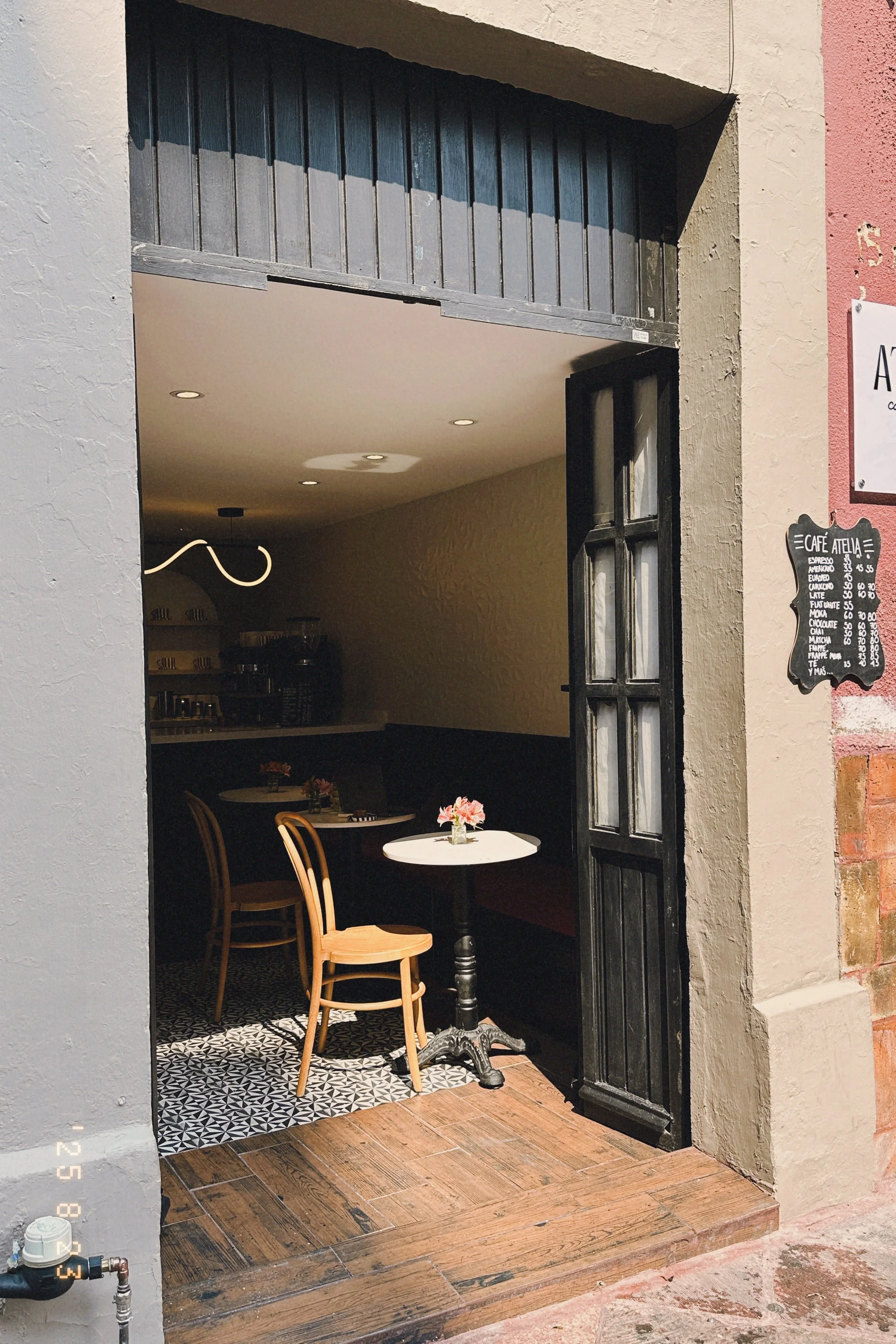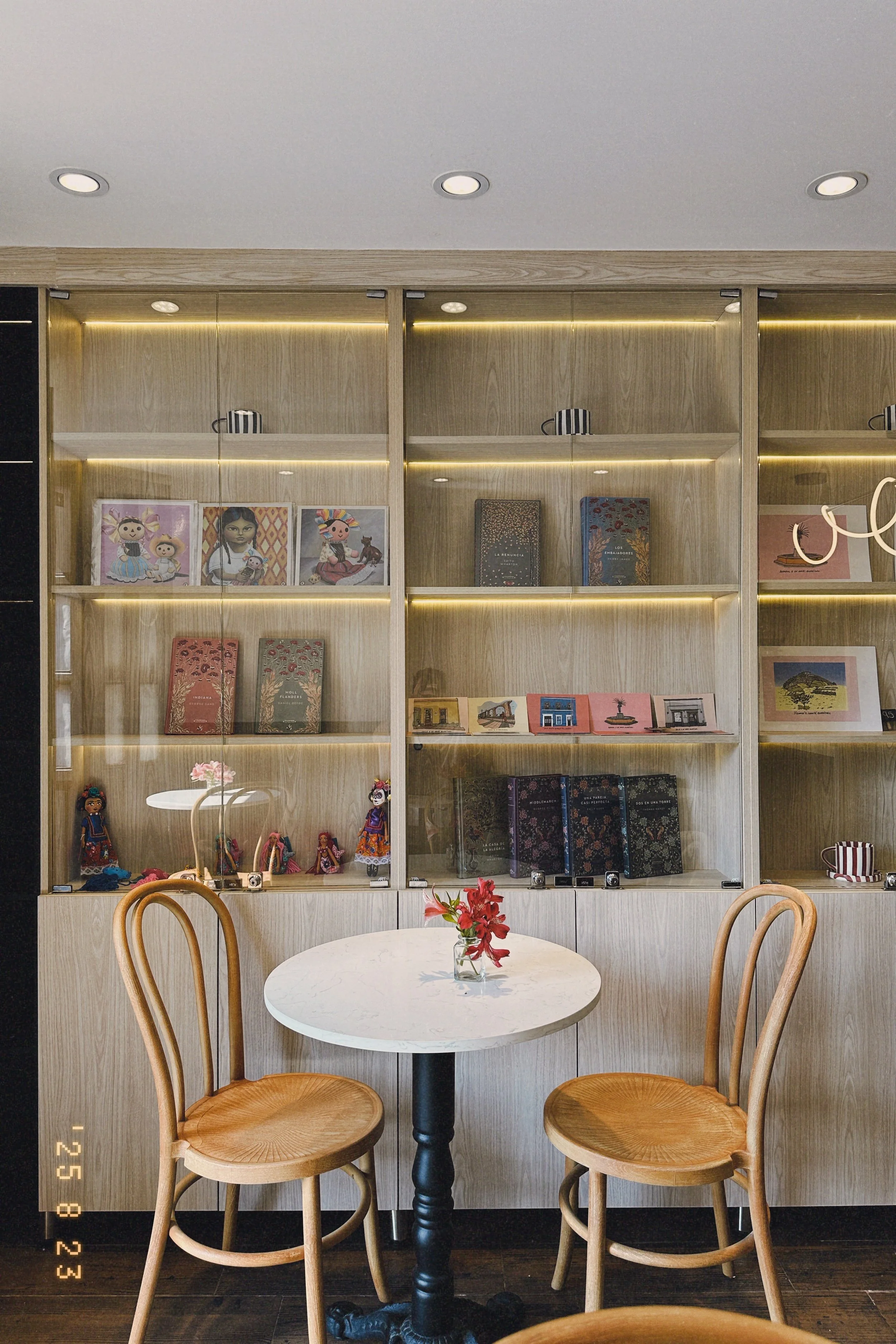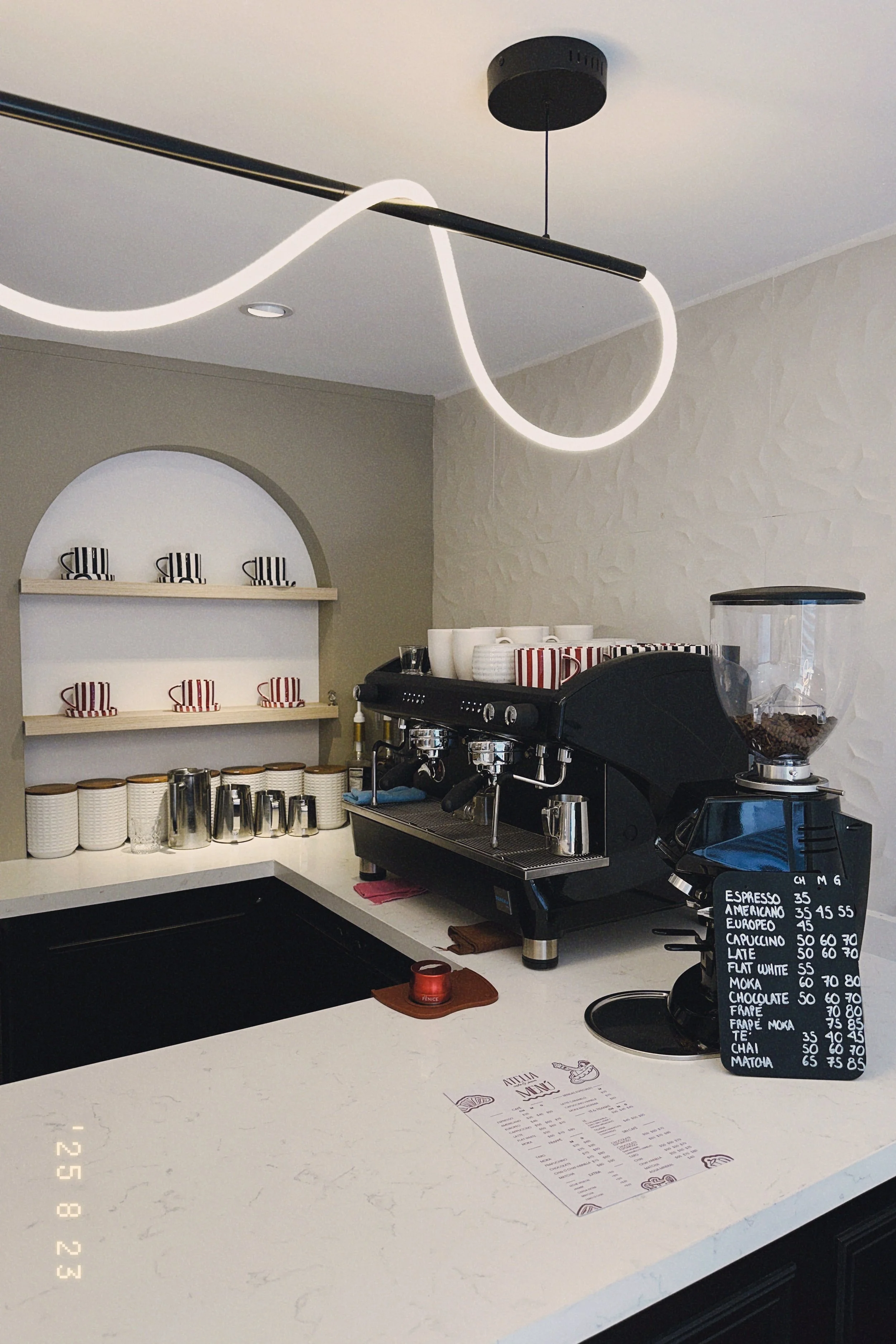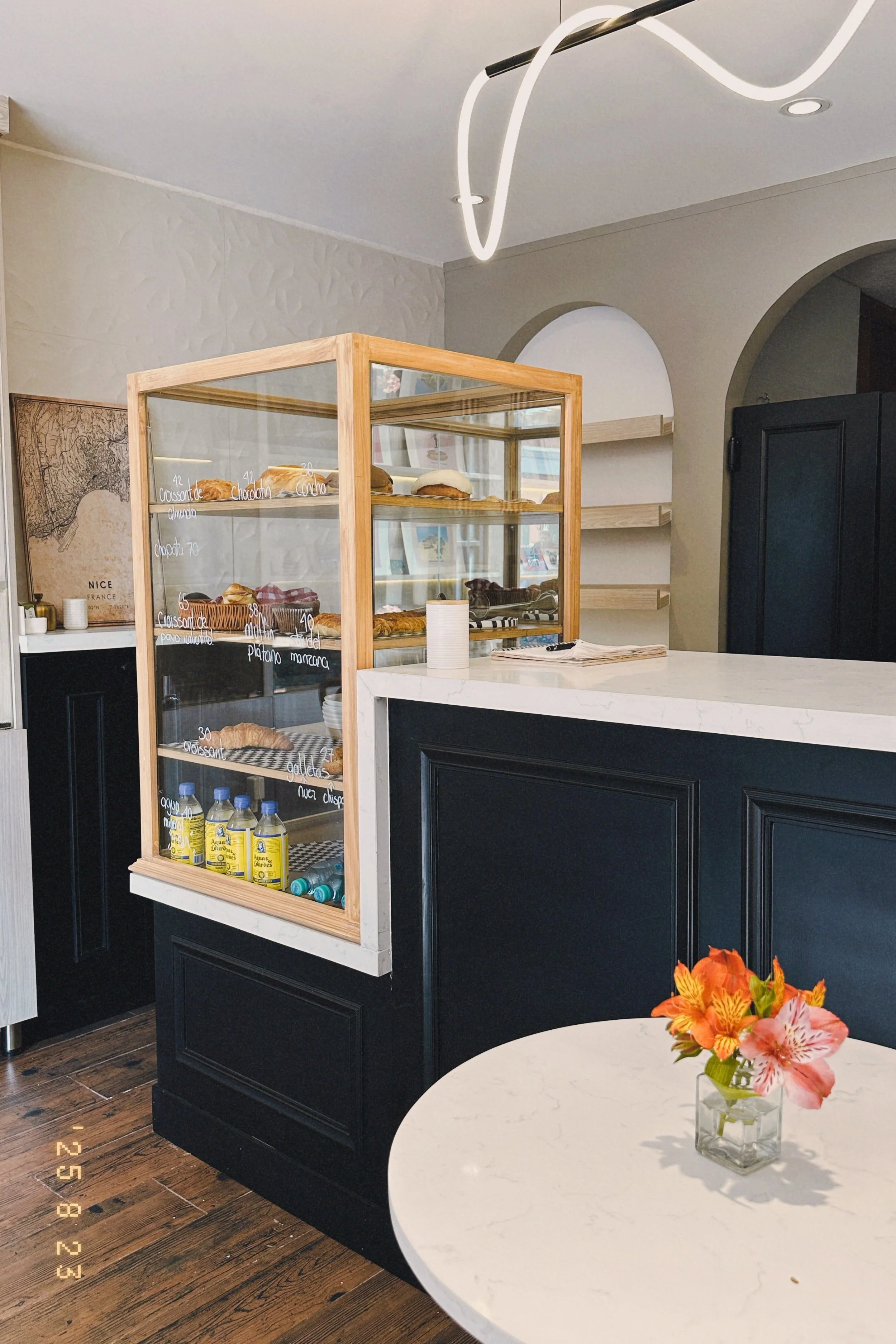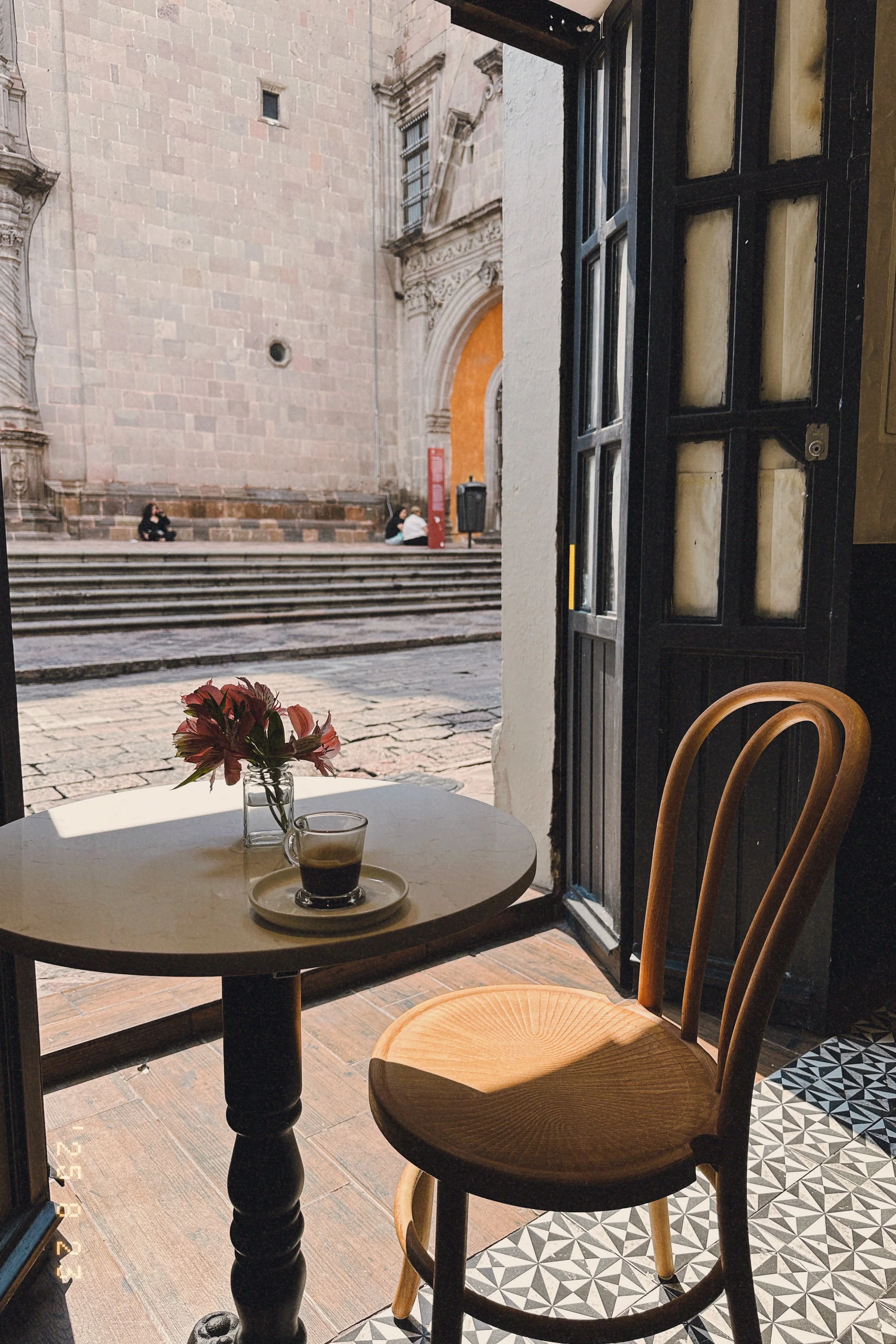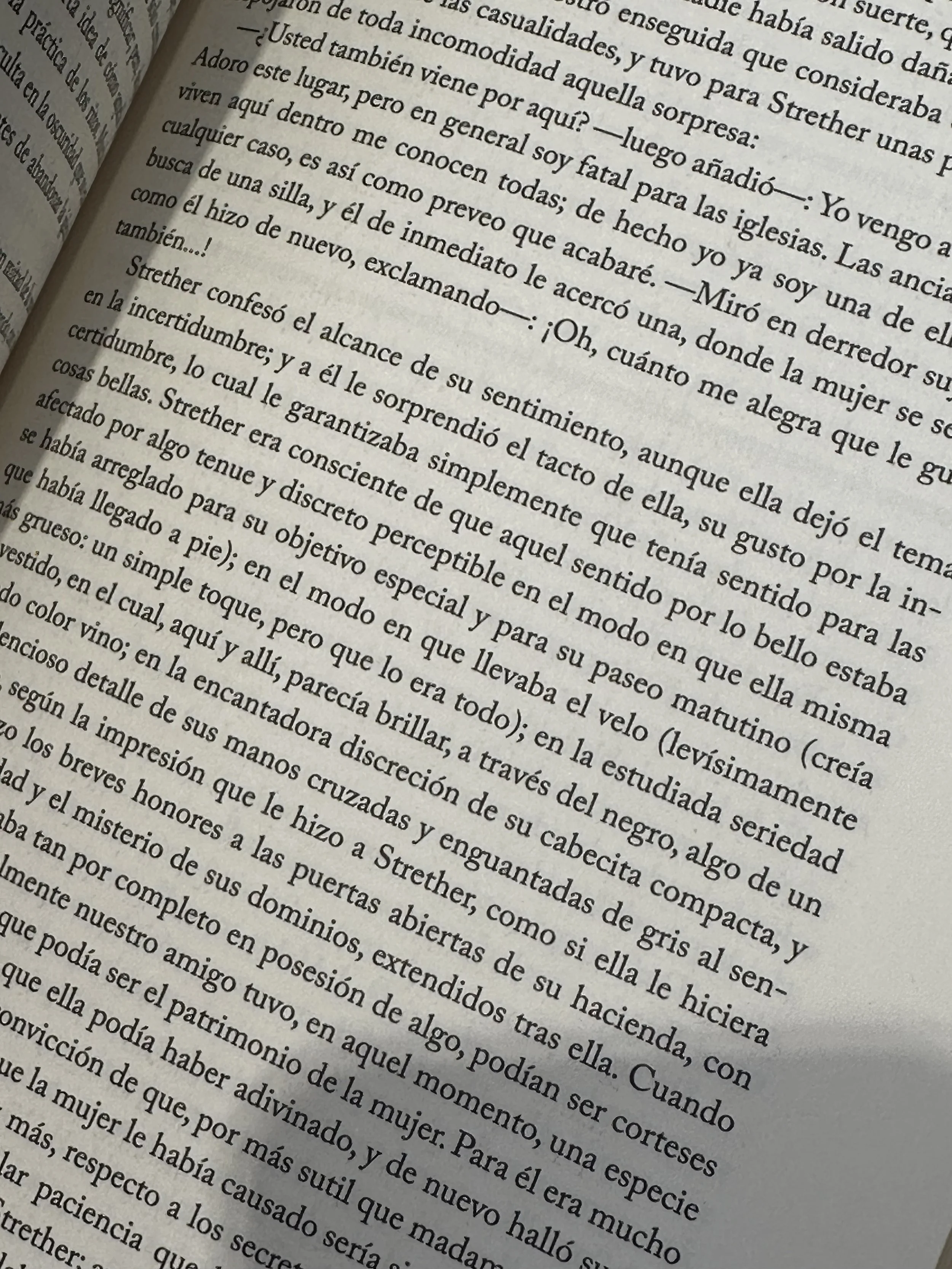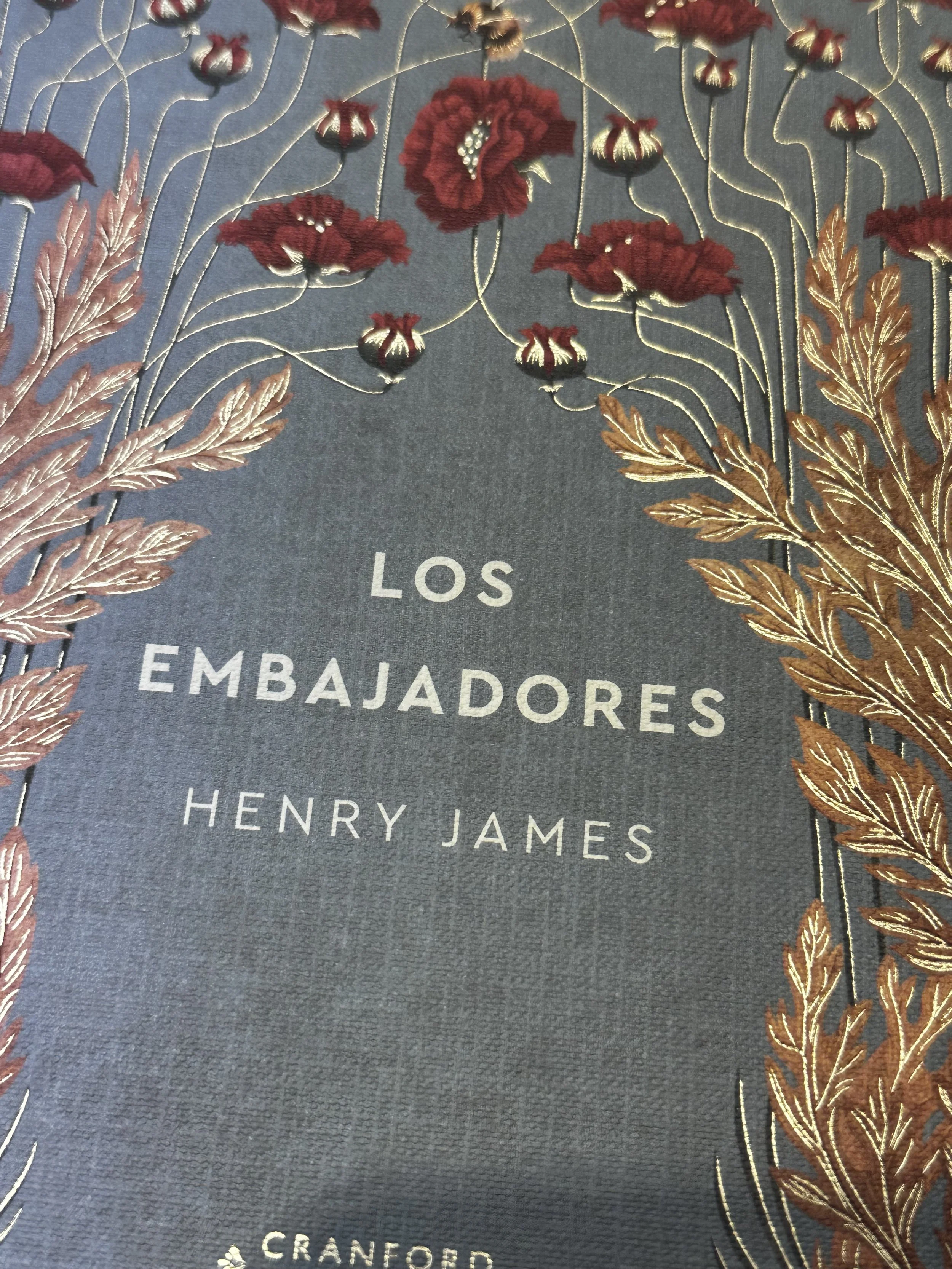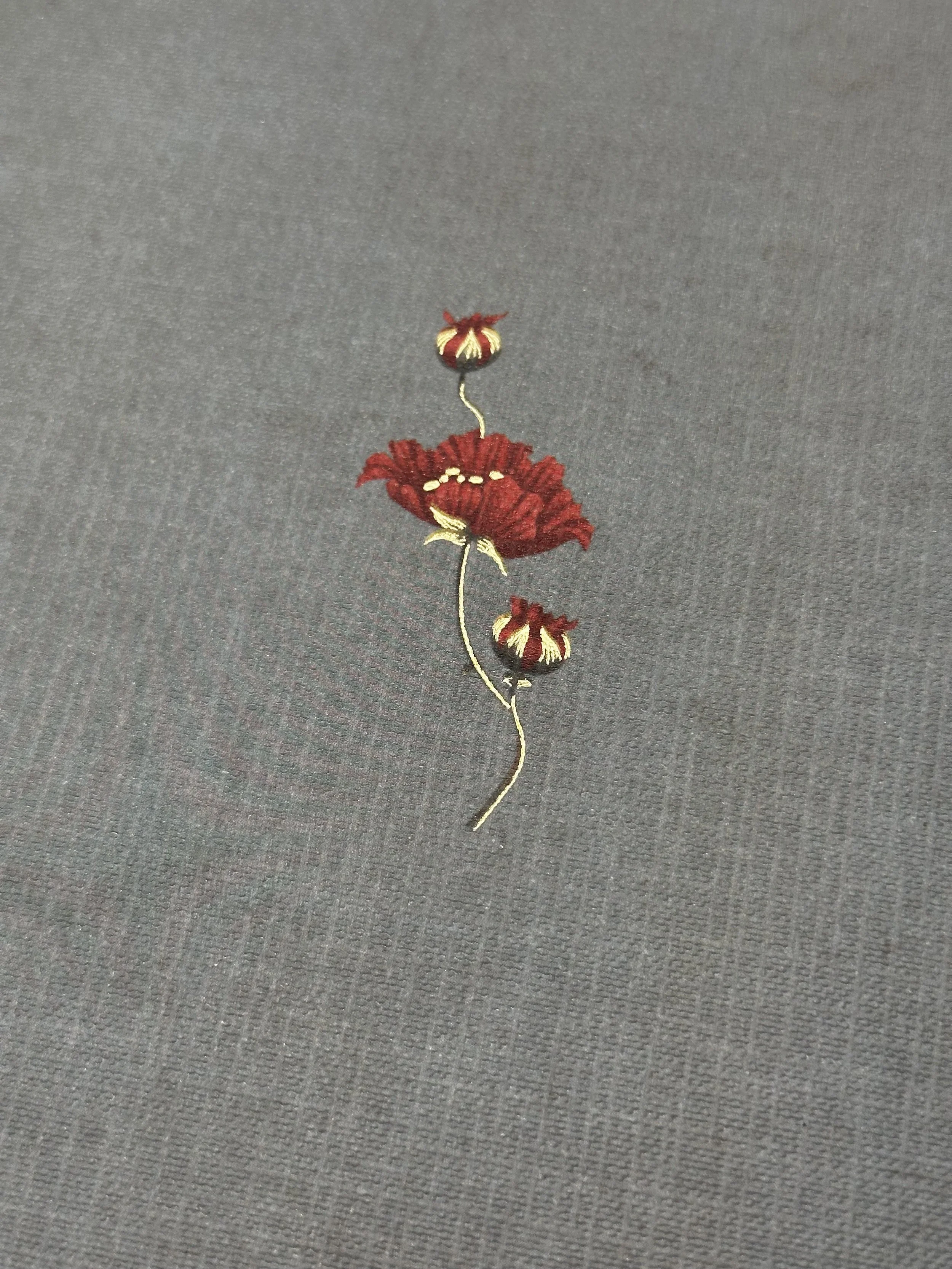ATELIA CAFÉ
Agosto 23, 2025, Querétaro, México.
Español
Desde fuera pude notar un garabato de luz LED flotando sobre la barra. A decir verdad, fue ese acento en el espacio lo que me hizo detenerme a observar. Yo ese lugar no lo había visto… se trataba de un nuevo café en la calle de Allende, por donde he pasado cientos de veces, casi frente a las puertas del museo y a un costado del Hotel de mi buen amigo, Pepe: La Casa del Atrio.
Stop! — Au Nom De L’Amour de Claude François sonaba en el fondo, volumen justo y necesario para que mi cabeza y mi pie se comenzaran a mover al ritmo de la música, gesto que de inmediato me hizo sentirme en un café en la costa de Francia, desde donde estaría viendo la Côte d’Azur, las gaviotas volando y las conversaciones flotando a mi alrededor, con ese aire exquisito de quien sabe respirar la vida sentado en un café.
A la izquierda, un librero iluminado con una buena selección de libros: Los Embajadores de Henry James, Indiana de George Sand, La casa de la alegría de Edith Wharton, entre otros. Todos de la misma casa editorial, una de las que crea libros que uno quiere tocar, oler y sostener por horas. A la derecha, tres mesitas de mármol y hierro forjado que en otra vida probablemente sostuvieron tazas e historias bajo el sol de Niza colándose entre los toldos, y en esta; lo reviven en un espacio de no más de veinte metros cuadrados en una ciudad del continente americano.
Tomé Los Embajadores. ¿Por intuición? Tal vez, porque sentí que ese libro me había elegido a mí en ese momento. En él, Henry James narra la historia de Strether, un hombre que termina cuestionando su propia vida mientras se desenvuelve toda una historia entre dos países...Me sorprendió lo oportuna que era esa historia en ese instante: yo también estaba ahí, representando a alguien que ya no soy del todo, cumpliendo expectativas que nadie me pidió explícitamente, descubriendo que basta una taza de café en un lugar ajeno para reencontrarse.
Atelia —así se llama este pequeño refugio— me pareció más que un café. Era, como en la novela, una embajada simbólica. Un umbral entre versiones de uno mismo. Un lugar donde uno puede dejar de actuar por encargo y comenzar a preguntarse si la vida que lleva es realmente la que quiere vivir. Porque a veces basta un sorbo de espresso y una línea subrayada para desmontar años de certezas. Y es que en el fondo, las relaciones —con los otros, con el país que te vio nacer, con los sueños que juraste perseguir— son siempre un tira y afloja entre lo que representas y lo que deseas.
En Niza, dicen, la gente se sienta de cara al sol. Aquí, en Querétaro, lo hacemos de cara al tiempo. Pero en este café afrancesado, por un momento, no hubo sol ni reloj: solo esa sensación íntima de estar en el lugar correcto, leyendo las palabras correctas, con el corazón ligeramente desacomodado, pero atento.
English
From the outside, I noticed a scribble of LED light floating above the bar. To be honest, it was that small accent in the space that made me stop and look closer. I hadn’t seen this place before… it was a new café on Allende Street, a street I’ve walked hundreds of times, almost across from the museum’s doors and right next to my good friend Pepe’s hotel: La Casa del Atrio.
Stop! — Au Nom De L’Amour by Claude François played in the background, the volume just right for my head and foot to begin moving to the rhythm. That gesture alone made me feel as if I were in a café on the French coast, seeing the Côte d’Azur, the gulls in flight, and conversations floating around me, carrying that exquisite air of those who know how to breathe life sitting at a café.
To the left, a lit bookshelf with a fine selection of books: The Ambassadors by Henry James, Indiana by George Sand, The House of Mirth by Edith Wharton, among others. All from the same publishing house, one of those that creates books one longs to touch, smell, and hold for hours. To the right, three marble-and-wrought-iron tables that, in another life, probably held cups and stories under the sun of Nice, slipping through awnings—and in this life, revive themselves within a space of no more than twenty square meters in a city on the American continent.
I picked up The Ambassadors. By intuition? Perhaps. But I felt the book had chosen me in that moment. In it, Henry James tells the story of Strether, a man who ends up questioning his own life as an entire narrative unfolds between two countries… How timely it felt: I too was there, representing someone I am no longer entirely, fulfilling expectations no one explicitly asked of me, discovering that a single cup of coffee in a foreign place can be enough to find oneself again.
Atelia—such is the name of this small refuge—felt like more than a café. It was, as in the novel, a symbolic embassy. A threshold between versions of oneself. A place where you can stop acting on behalf of others and start asking if the life you’re living is truly the one you want. Because sometimes all it takes is a sip of espresso and a line underlined to dismantle years of certainty. And deep down, relationships—with others, with the country that saw you born, with the dreams you swore to chase—are always a tug-of-war between what you represent and what you desire.
In Nice, they say, people sit facing the sun. Here in Querétaro, we sit facing time. But in this French-styled café, for a moment, there was neither sun nor clock: only that intimate sensation of being in the right place, reading the right words, with a heart slightly unsettled, yet awake.

